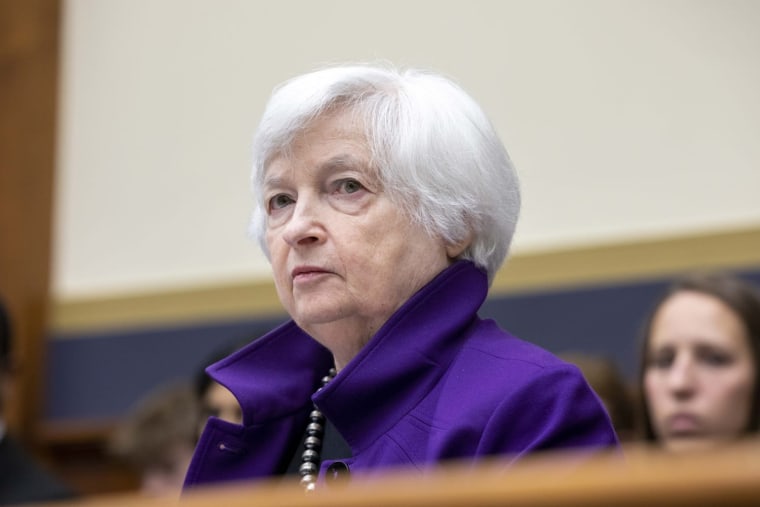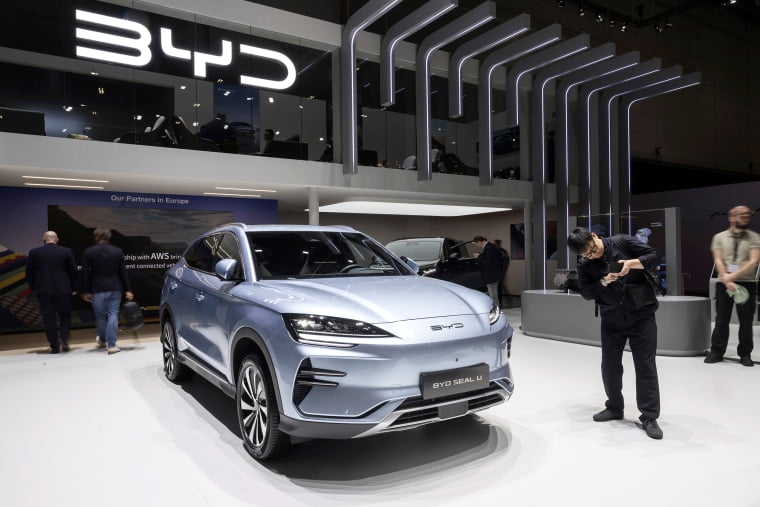China has extra solar power, electric vehicles, and lithium-ion batteries due to years of investment in renewable energy, which enables it to sell such goods to markets worldwide at lower prices.
In Short
- China’s investments in renewable energy have led to a surplus, impacting global markets.
- Us treasury secretary janet yellen has warned about china’s overcapacity affecting us businesses.
- The biden administration aims to address these issues through domestic clean energy initiatives.
TFD – Delve into the complex dynamics of China’s clean energy dominance, the escalating US-China trade conflict, and the Biden administration’s strategies to address these challenges. Stay updated on the latest developments shaping global energy and trade landscapes.

On Wednesday, Treasury Secretary Janet Yellen issued a warning, claiming that China is using the world market as a landfill for its less expensive clean energy products, driving down market pricing and restricting green manufacturing in the United States.
Yellen expressed her concerns about worldwide spillovers from China’s surplus capacity during a speech to Suniva, a solar firm located in Georgia. “China’s overcapacity harms American businesses and workers as well as businesses and workers throughout the world by distorting global prices and production patterns.”
China can export lithium-ion batteries, electric cars, and solar energy to other nations at a lower cost because it has an excess of these resources. The more nascent green manufacturing sectors in the US and other countries find it challenging to compete as a result.
When Yellen visits China in the near future, she plans to press Chinese officials over these trade abuses.
“I intend to bring it up in conversation on my next visit there,” she declared. “I will put pressure on my Chinese counterparts to take the required actions to resolve this matter.”
The secretary’s worries are related to the White House’s efforts to leverage funds from the 2022 Inflation Reduction Act and other laws, such as the Science Act and CHIPS, to develop a thriving domestic clean energy sector.
Yellen has frequently praised the returns on these investments; in a recent speech, for example, she emphasized the “boom” in electric vehicles that the IRA has sparked.
However, those expenditures are lagging behind the Chinese government.

Yellen stated on Wednesday that “the Biden administration also recognizes that these investments are new.”
China, on the other hand, has been investing billions in clean energy for years, leading the globe in this energy transformation.
Yellen said, saying supply chains for these energy industries will suffer the more China’s clean energy oversupply tampers with world market prices.
“President Biden is dedicated to taking all necessary measures to safeguard our sectors from unjust competition,” Yellen declared.
A request for comment was not immediately answered by the Chinese Embassy in Washington.
Despite efforts to normalize relations, Yellen’s remarks underscore the persistent trade conflict between the United States and China.
President Joe Biden met with President Xi Jinping of China in November in an attempt to ease tensions that had been heightened for years due in part to a tariff battle that former President Donald Trump had started.
If Trump is elected to a second term in office, he has suggested raising hefty tariffs on Chinese goods.
Due to enduring concerns about trade and cybersecurity, fortifying U.S.-China relations has proven to be a dangerous endeavor in the decade following the Biden-Xi meeting.
Chinese smart cars are a national security danger, according to Biden, who initiated a probe into them in February. This is because the cars connect to American infrastructure while they are being driven on American roads.
In a statement from February, Biden declared, “China is determined to dominate the future of the auto market, including by using unfair practices.” “China’s policies could put our national security at danger by flooding our market with its automobiles. That is not going to occur under my supervision.
Conclusion
The clash between China’s clean energy dominance and US efforts to protect domestic industries underscores the complexities of global trade and energy policies. As tensions persist, navigating these challenges remains a key priority for international relations and economic stability.
Connect with us for the Latest, Current, and Breaking News news updates and videos from thefoxdaily.com. The most recent news in the United States, around the world , in business, opinion, technology, politics, and sports, follow Thefoxdaily on X, Facebook, and Instagram .
